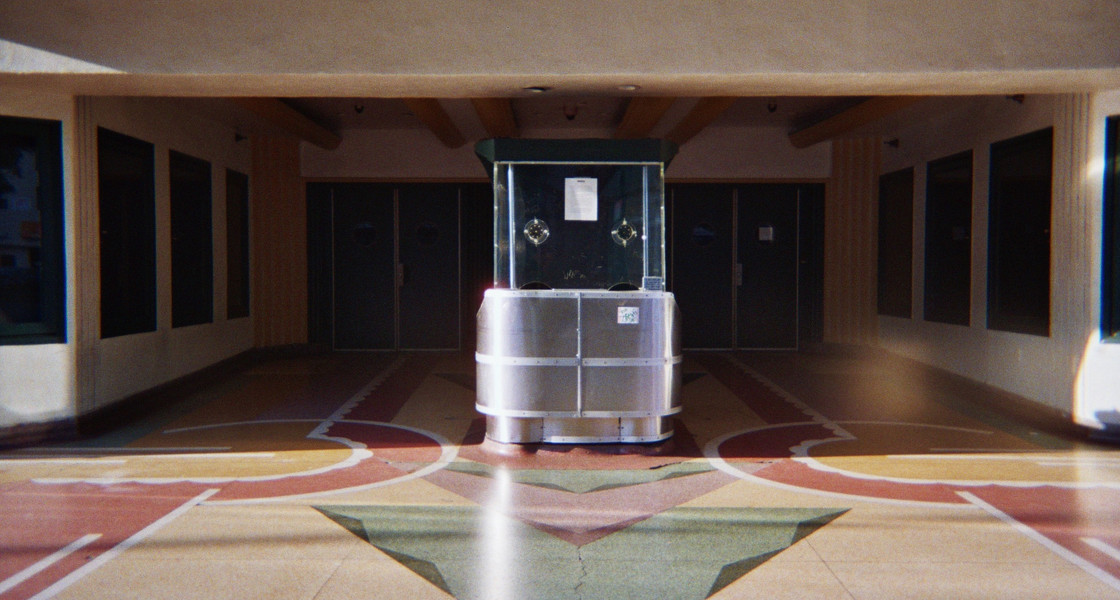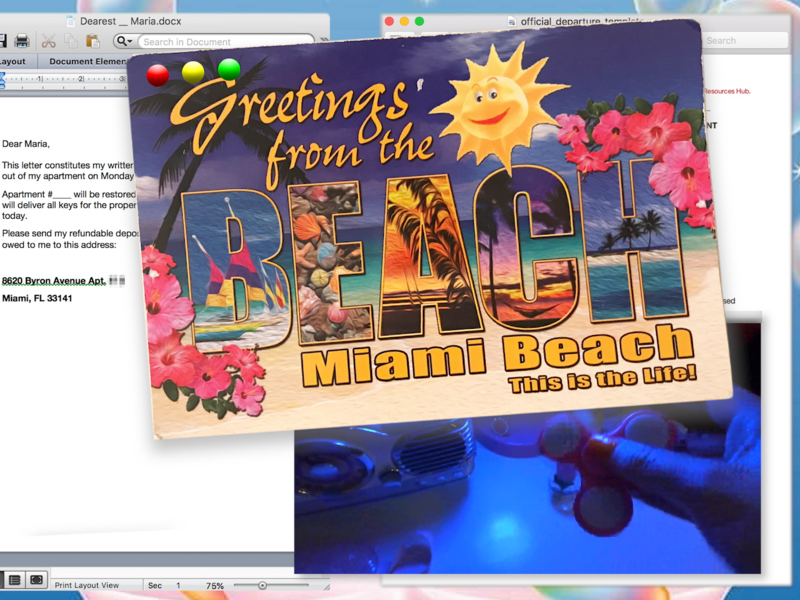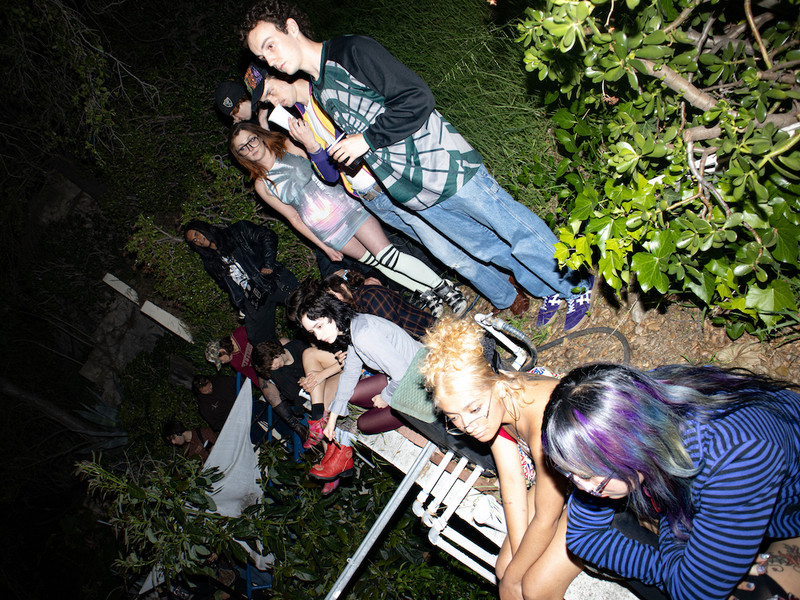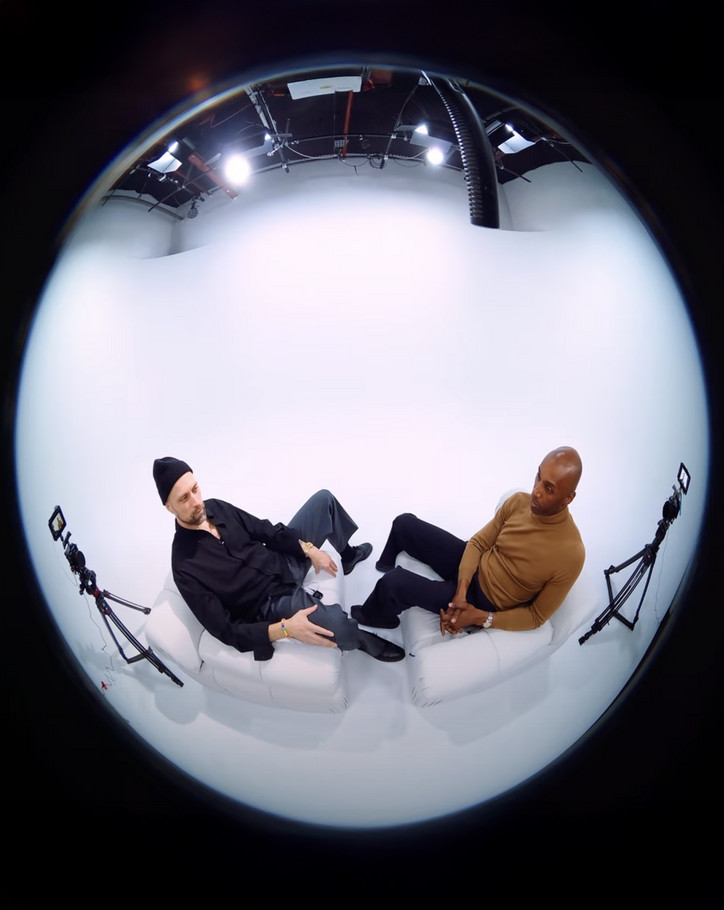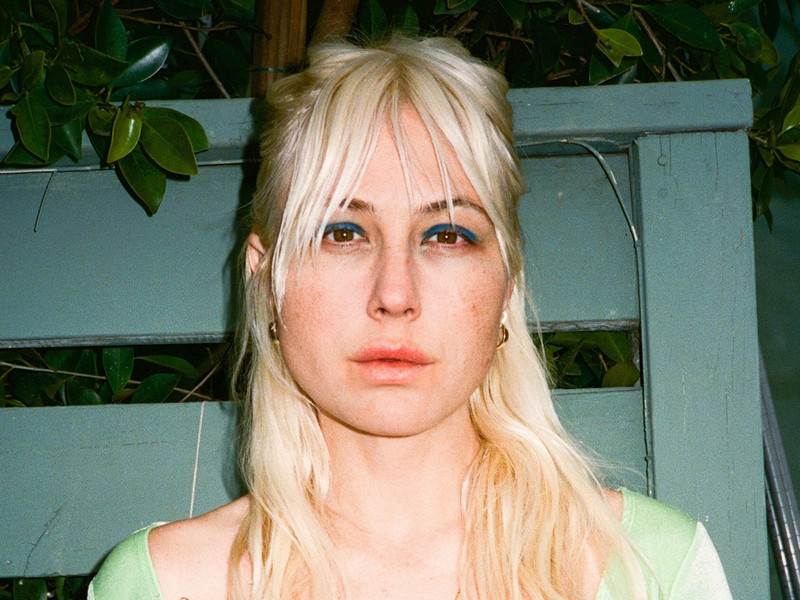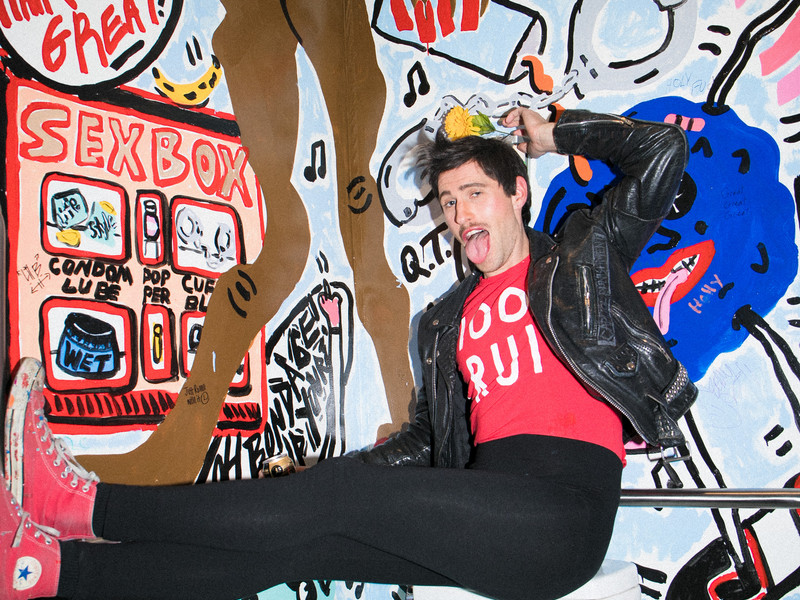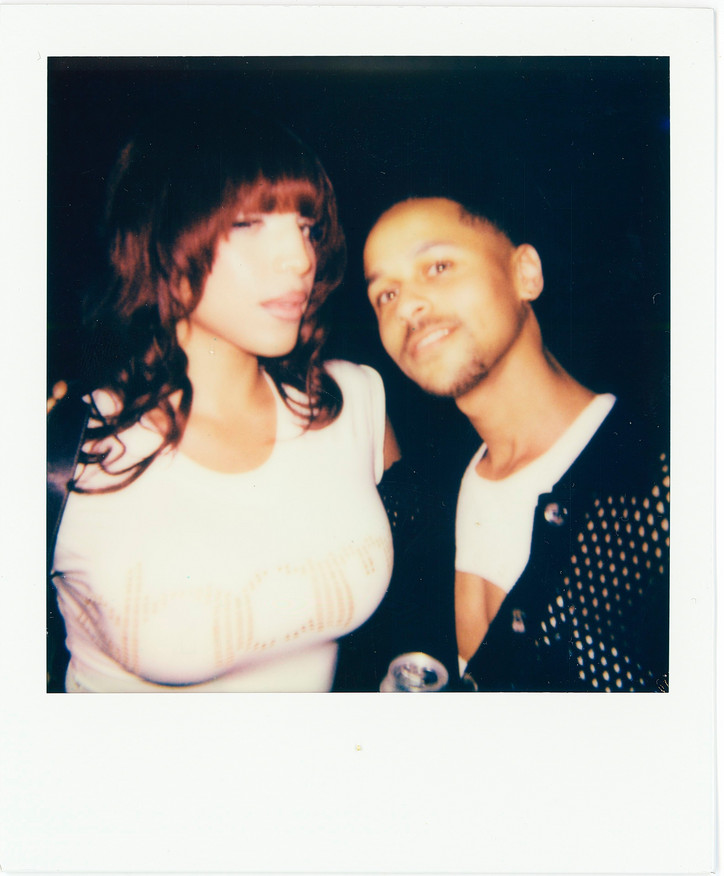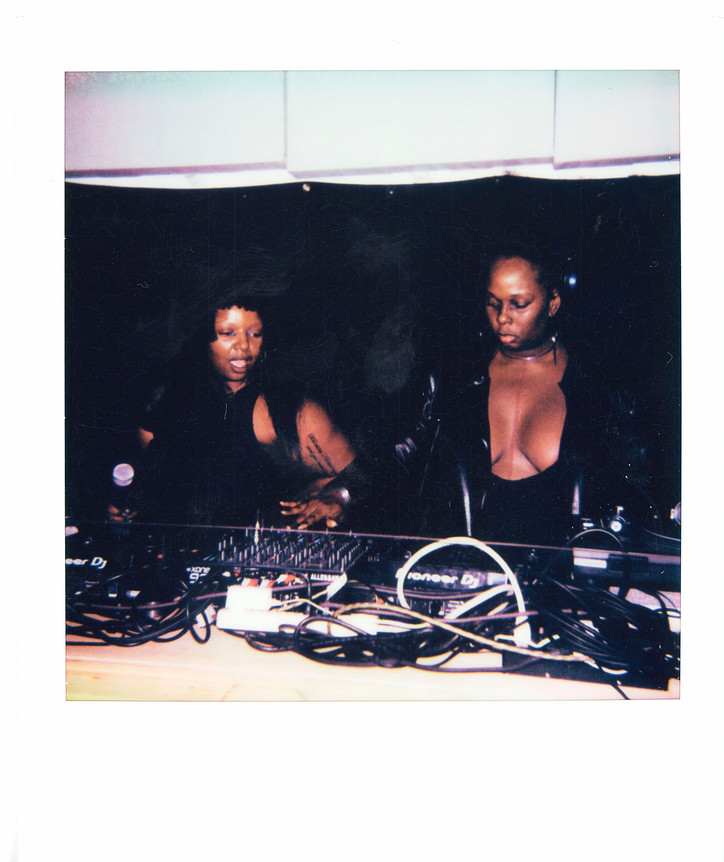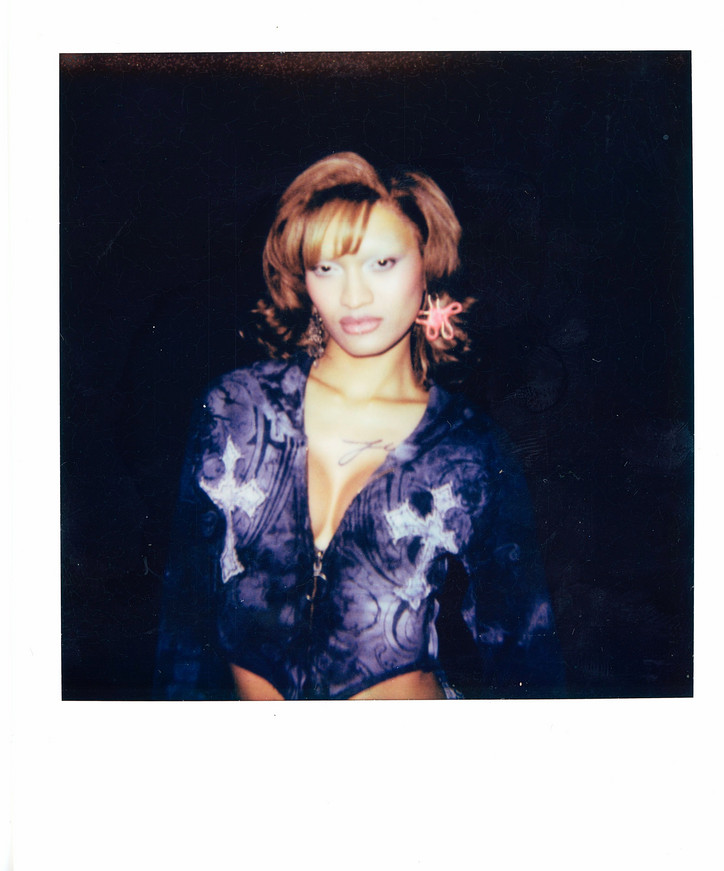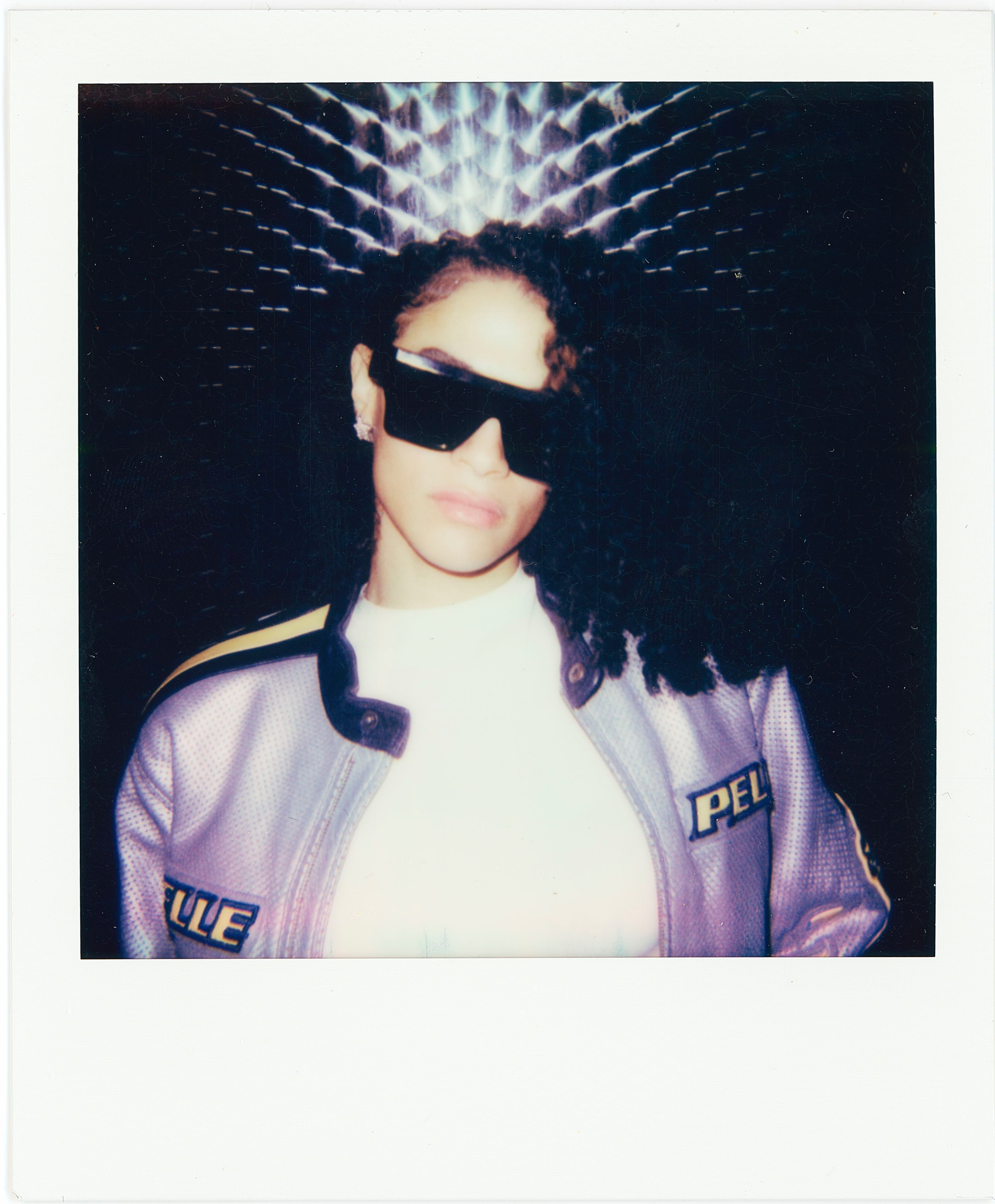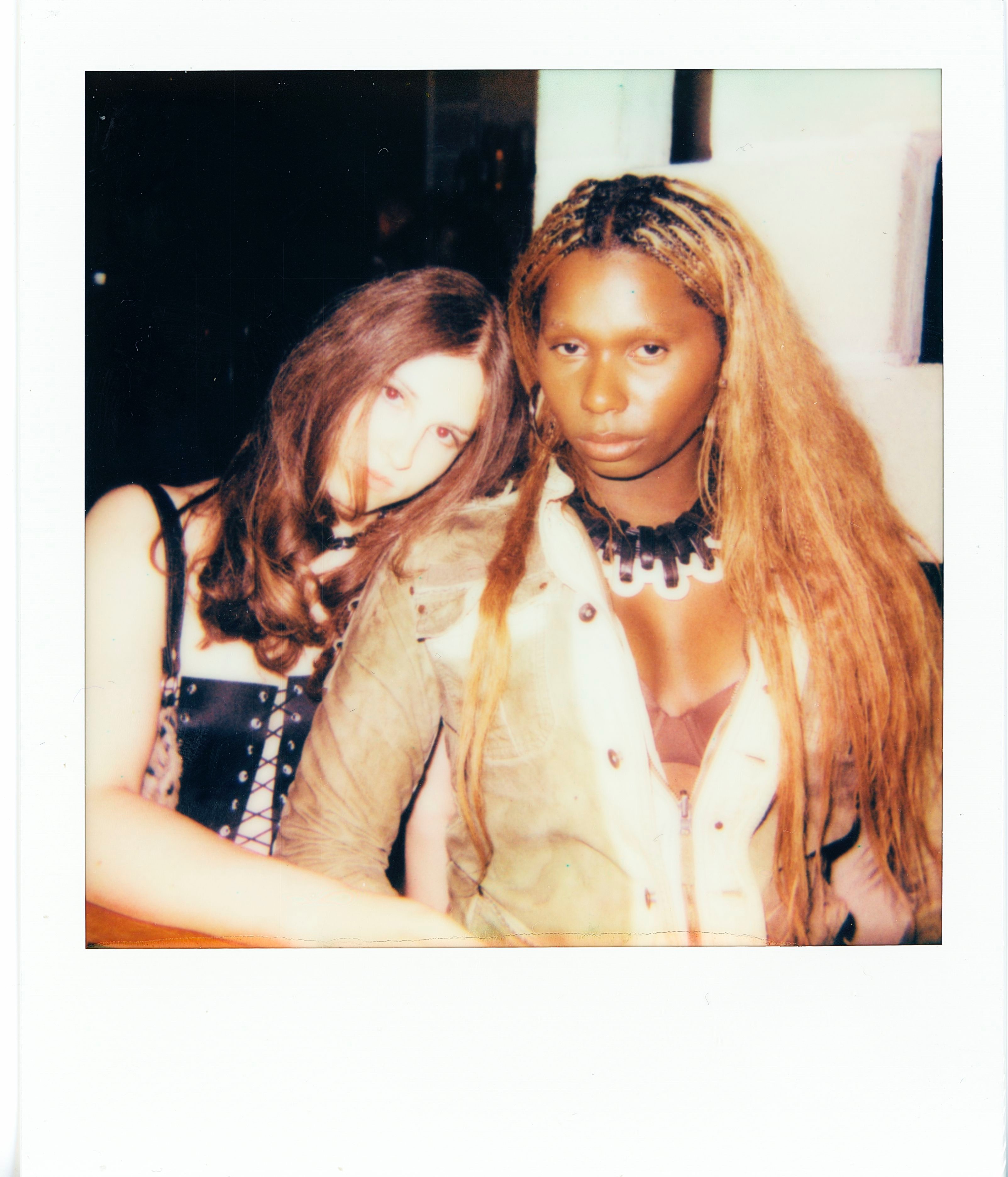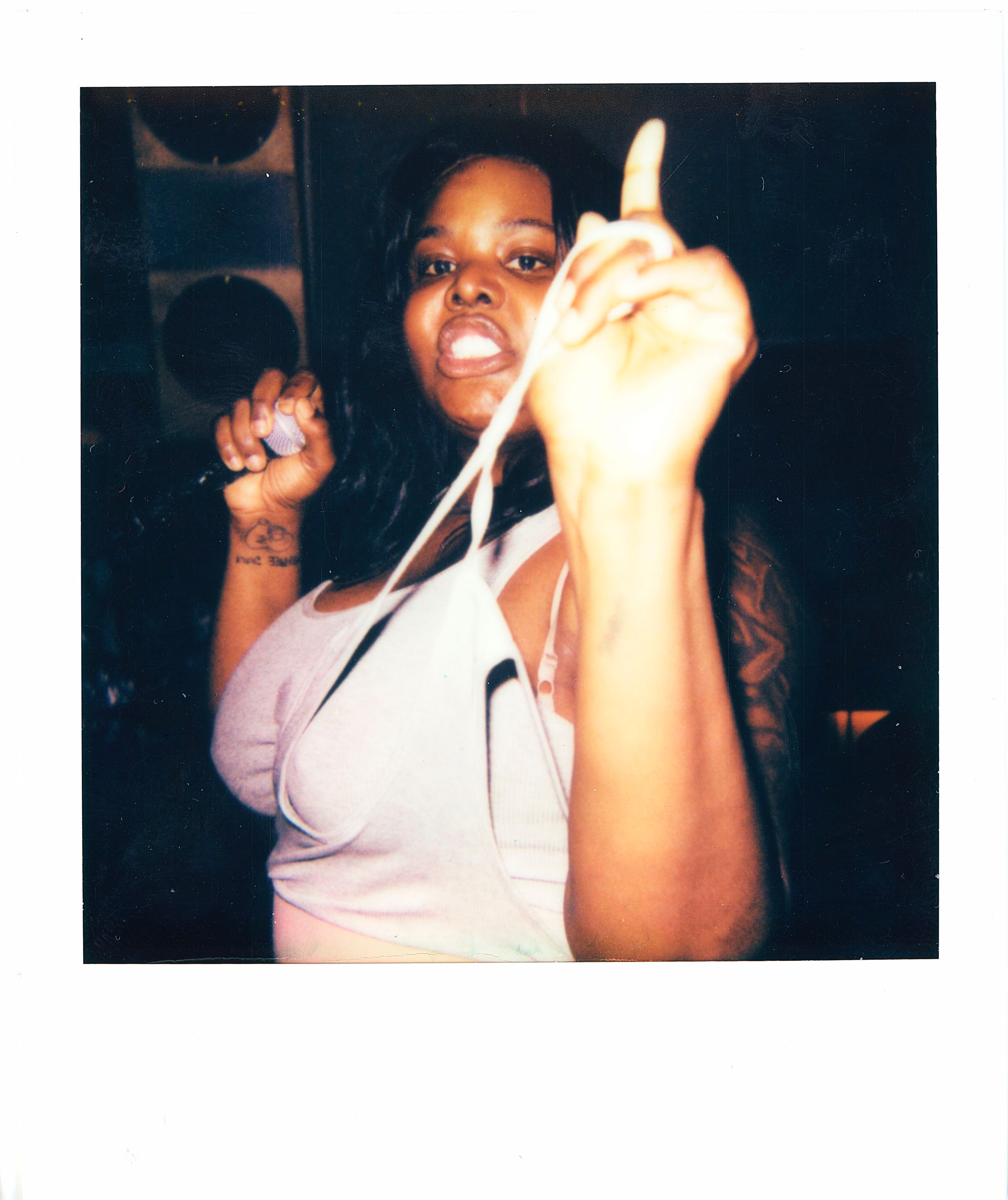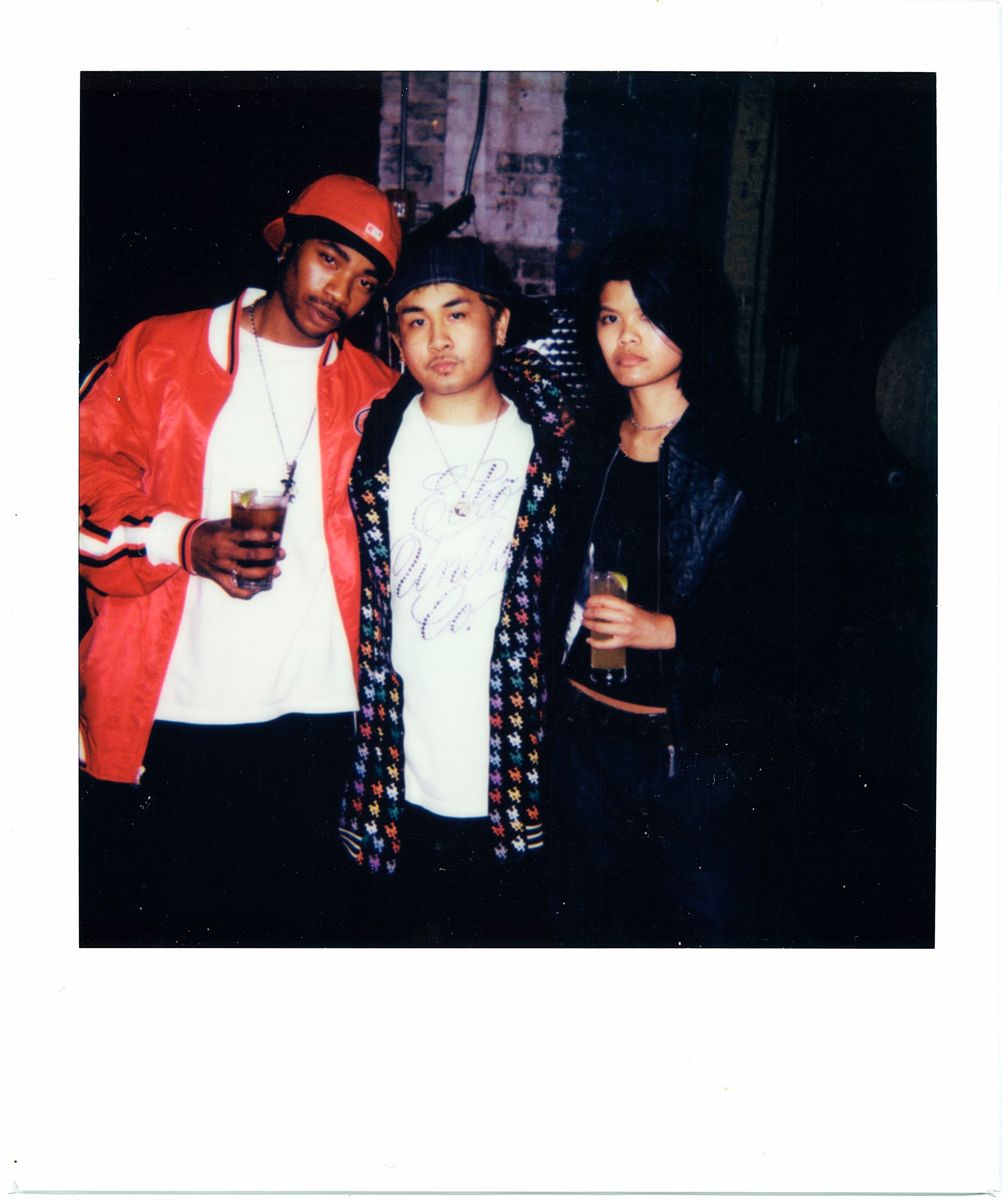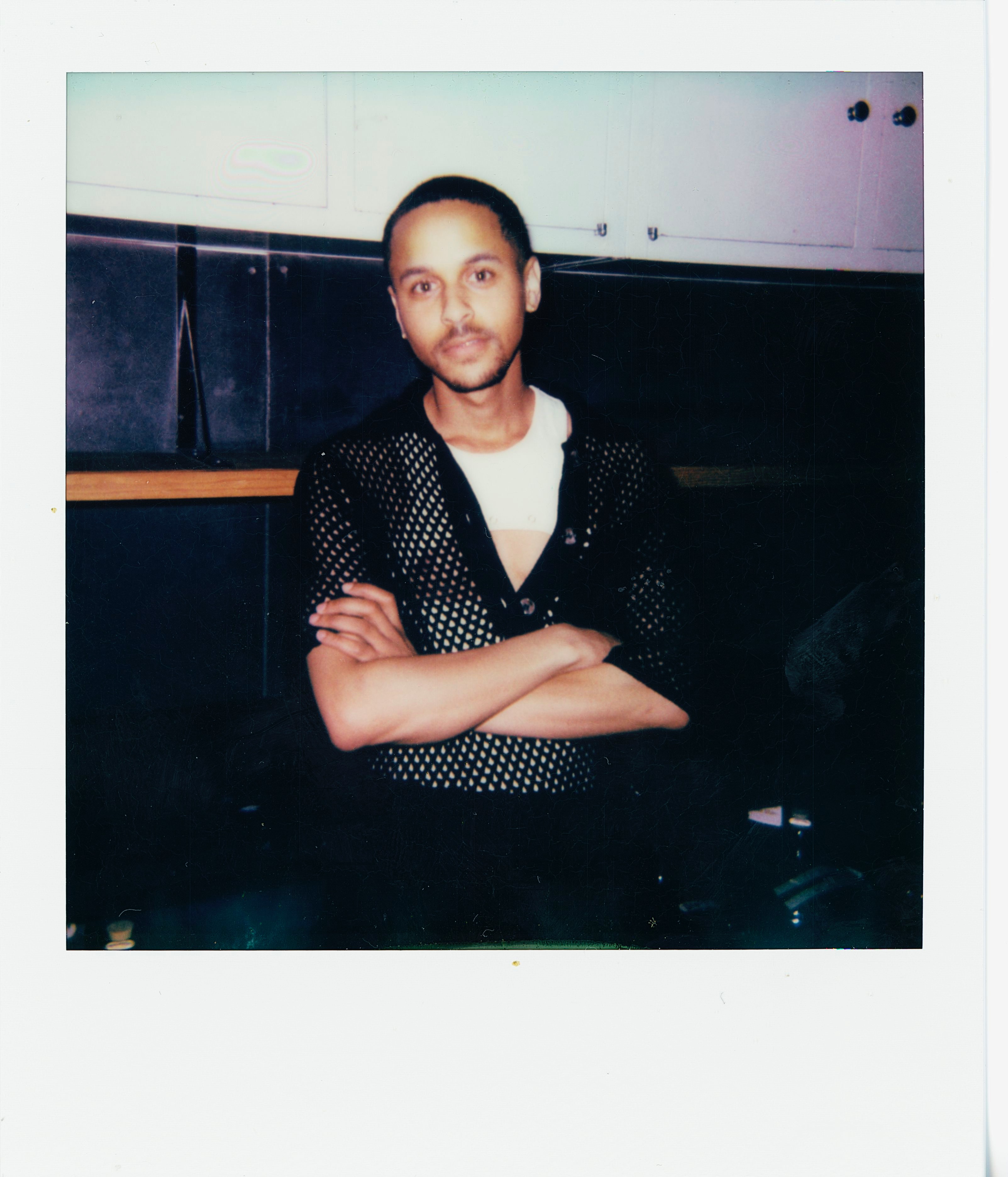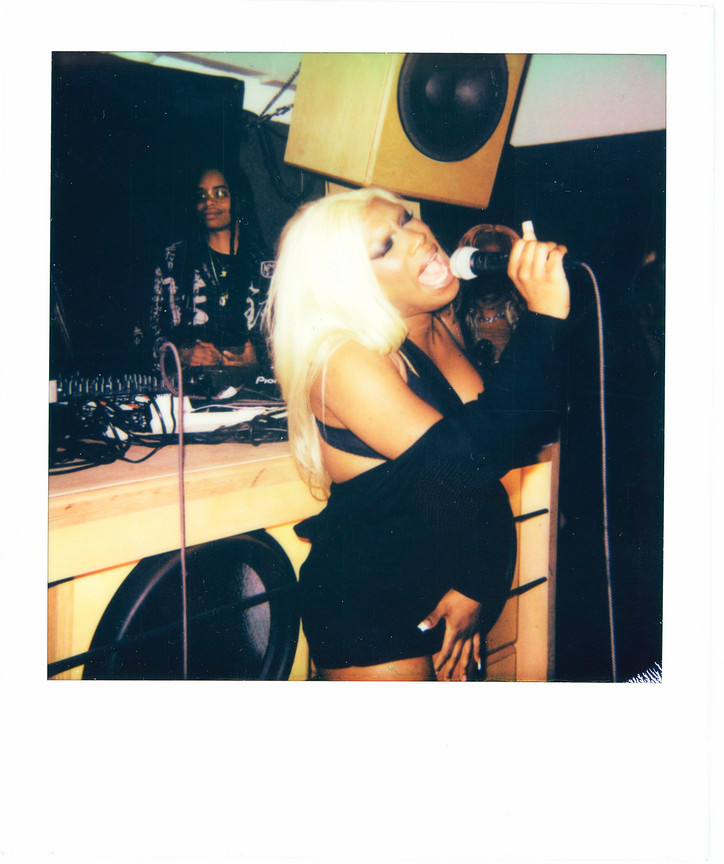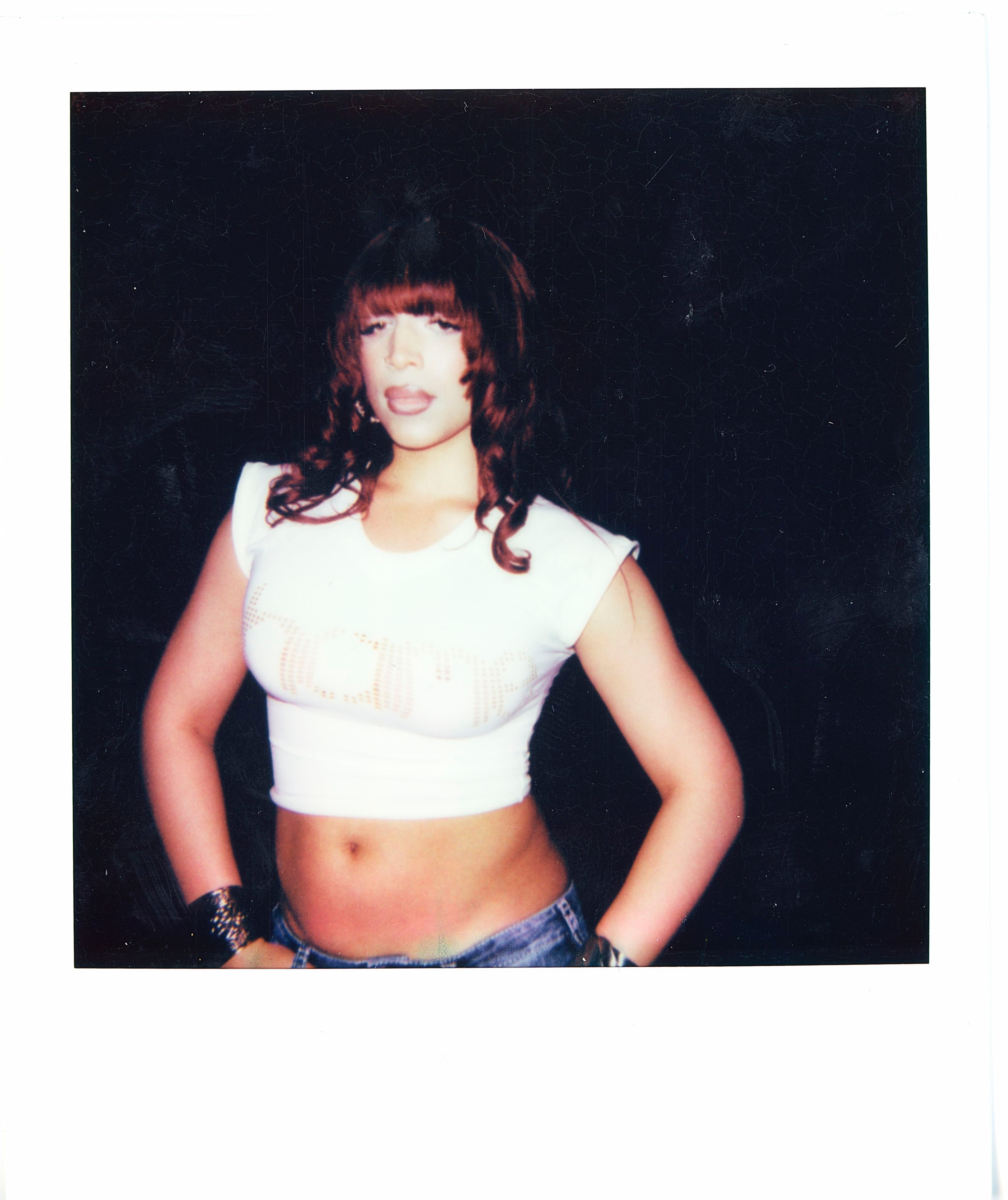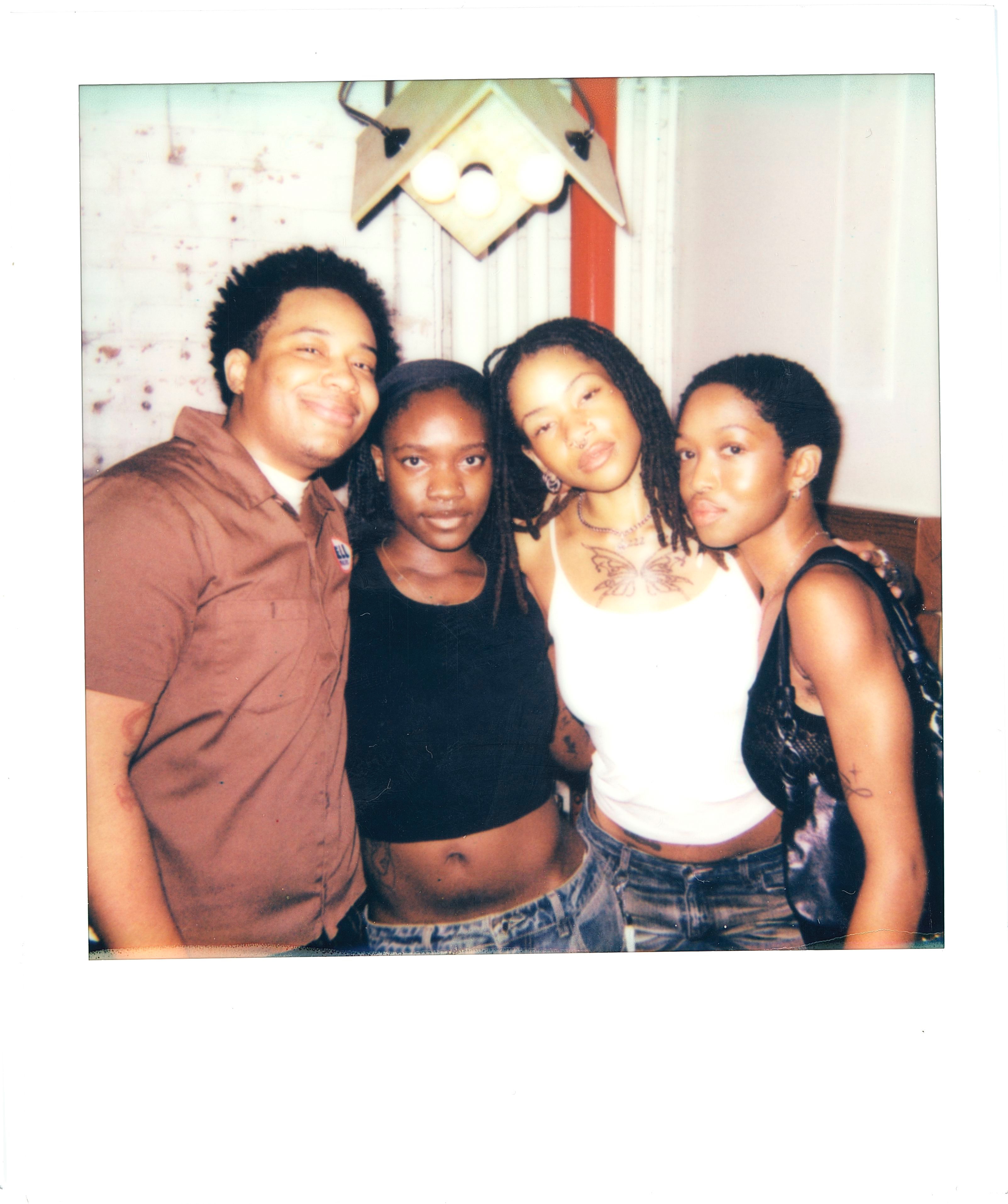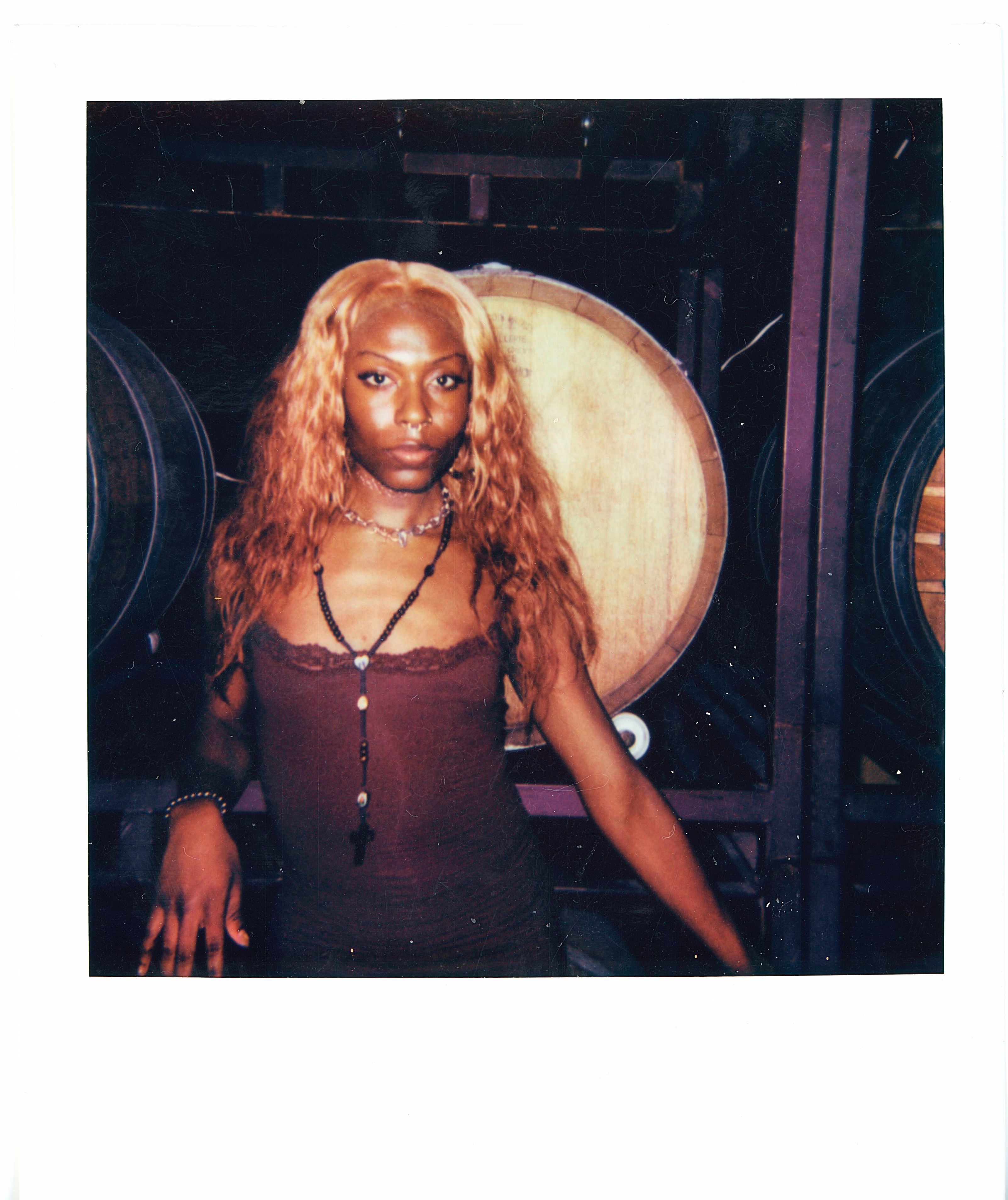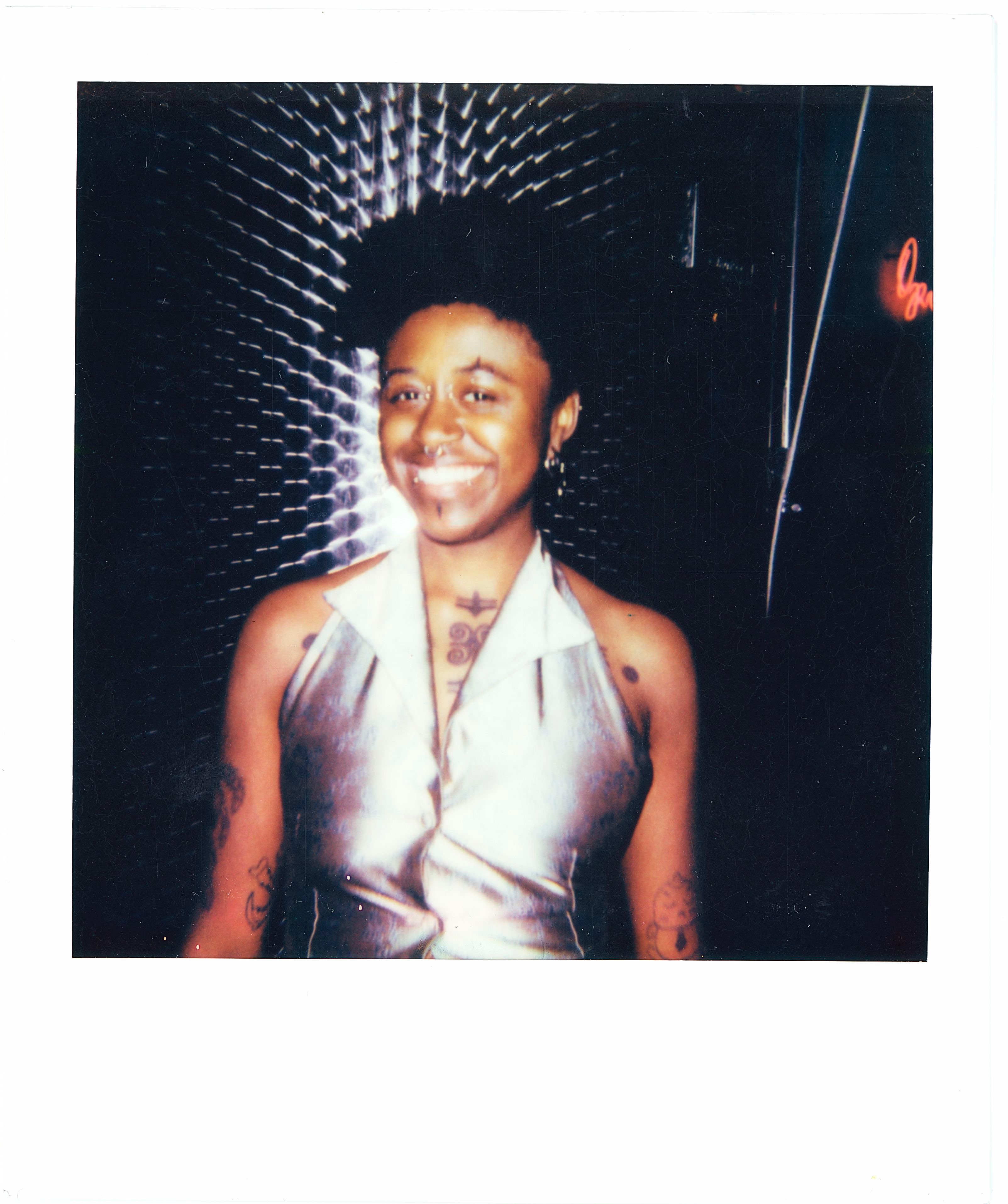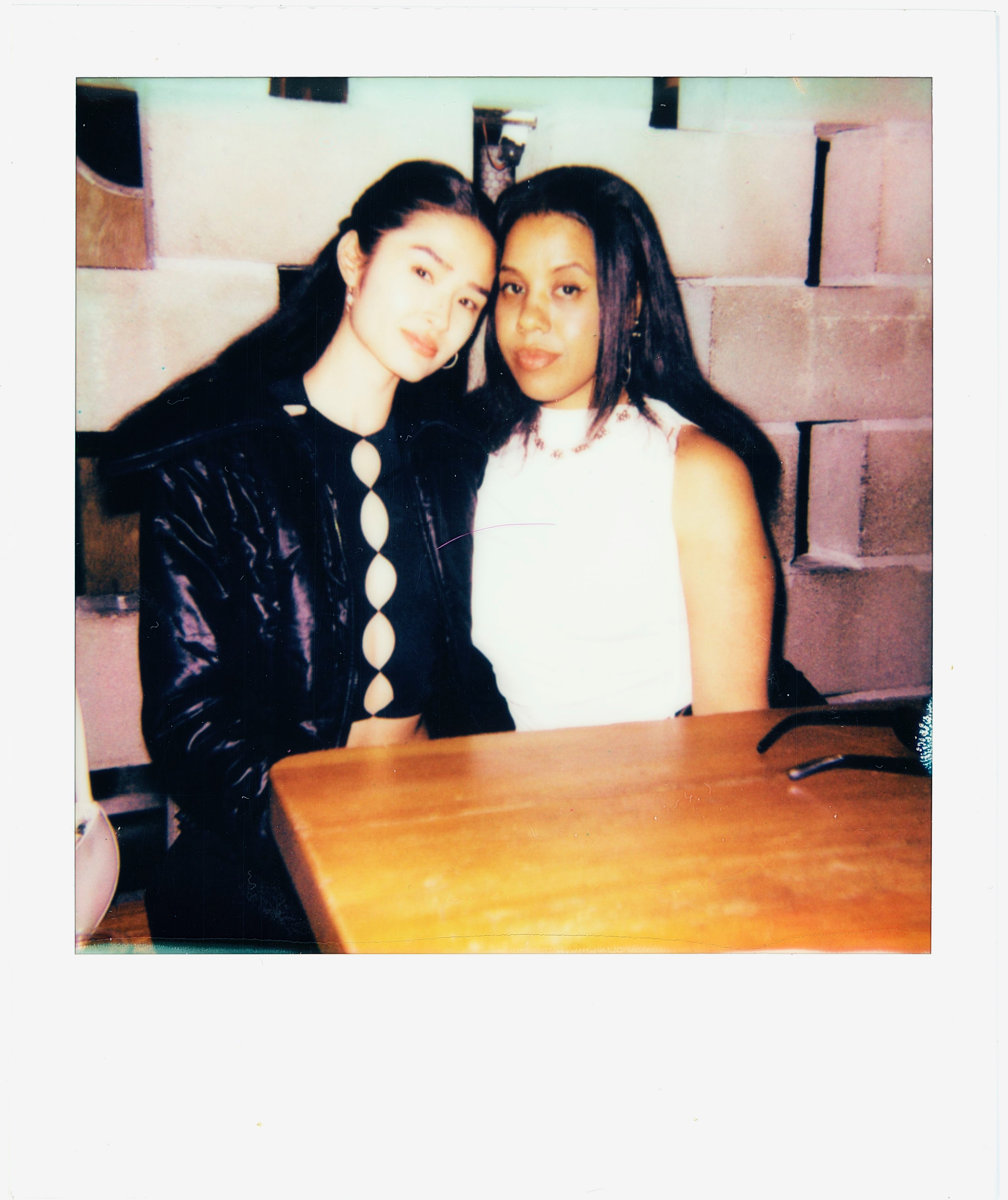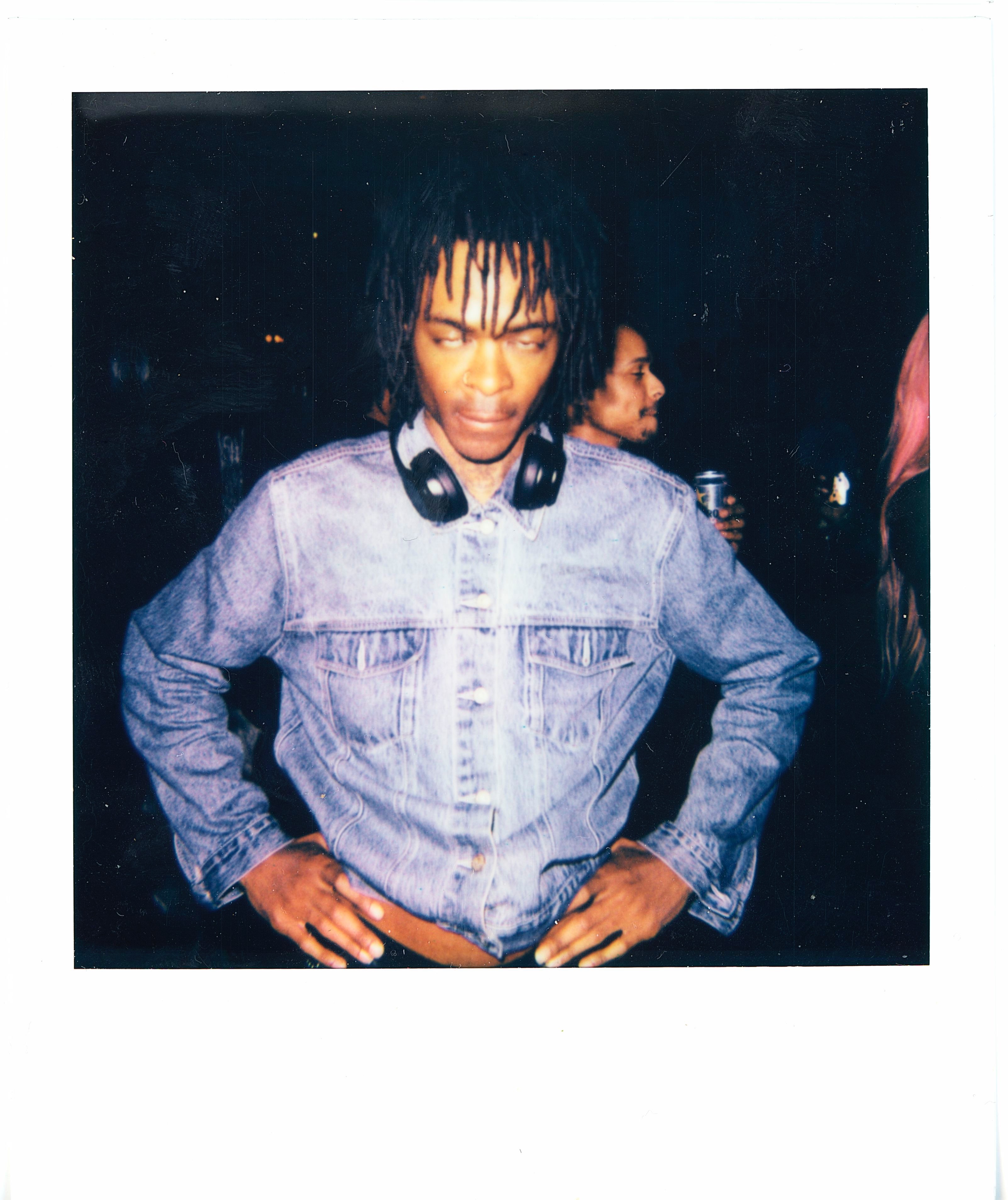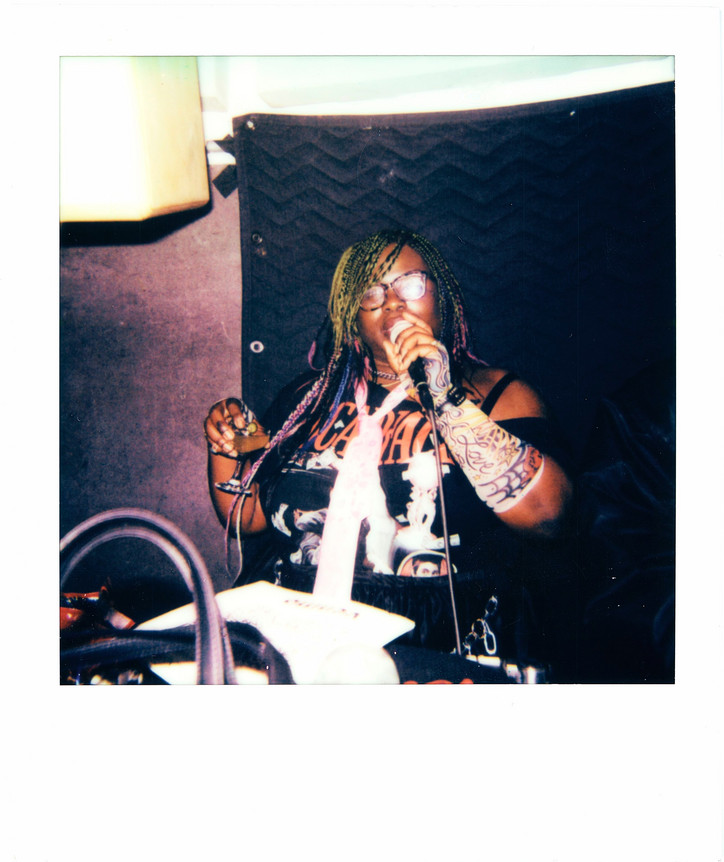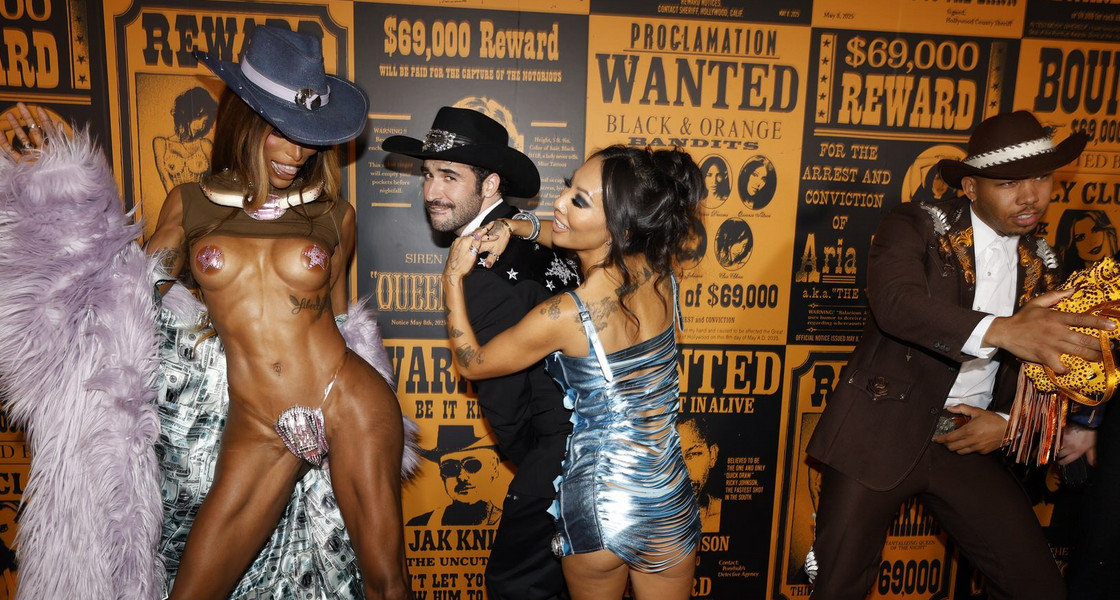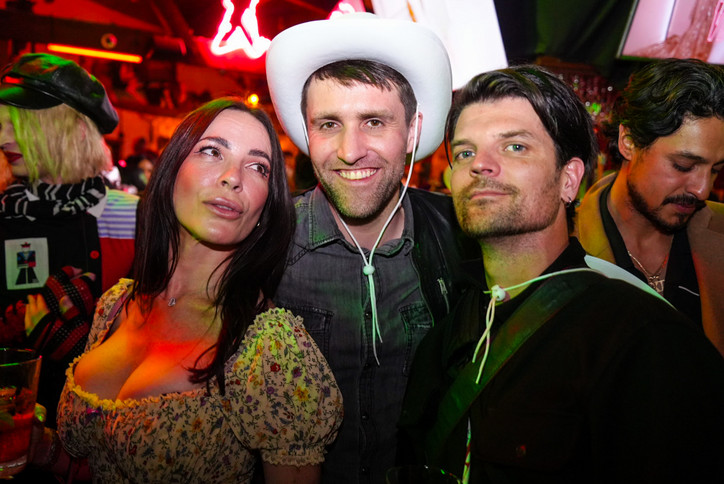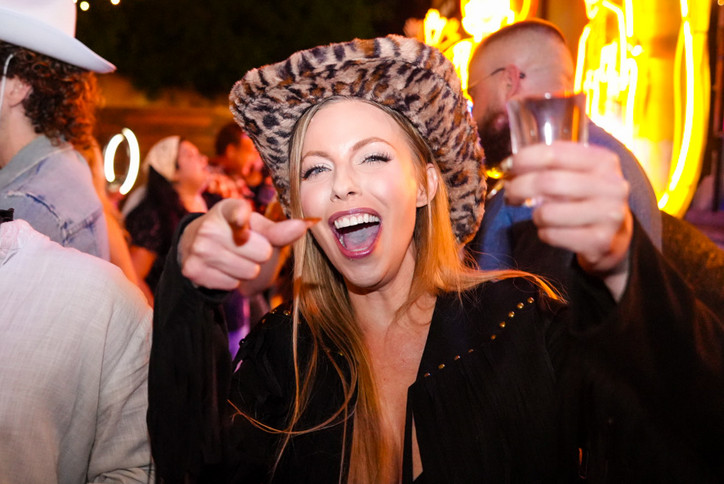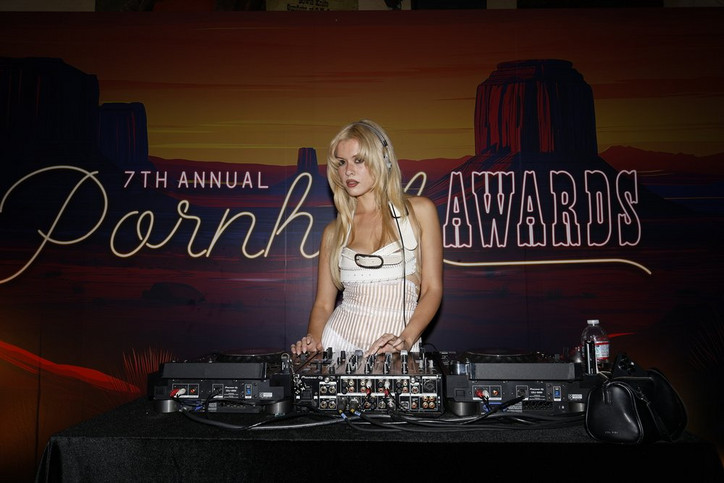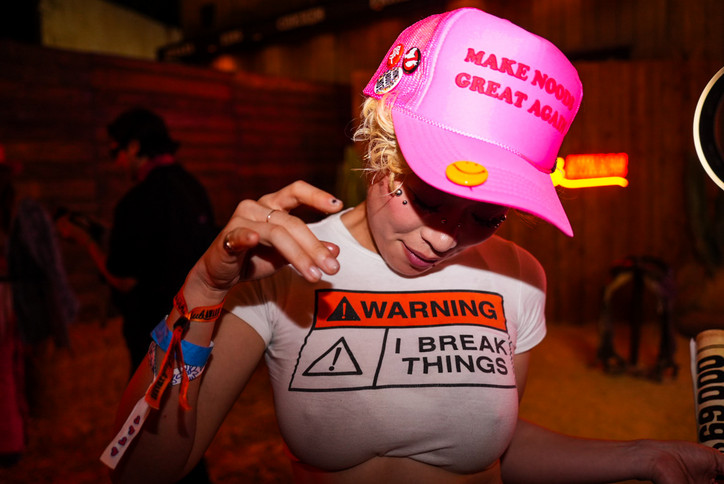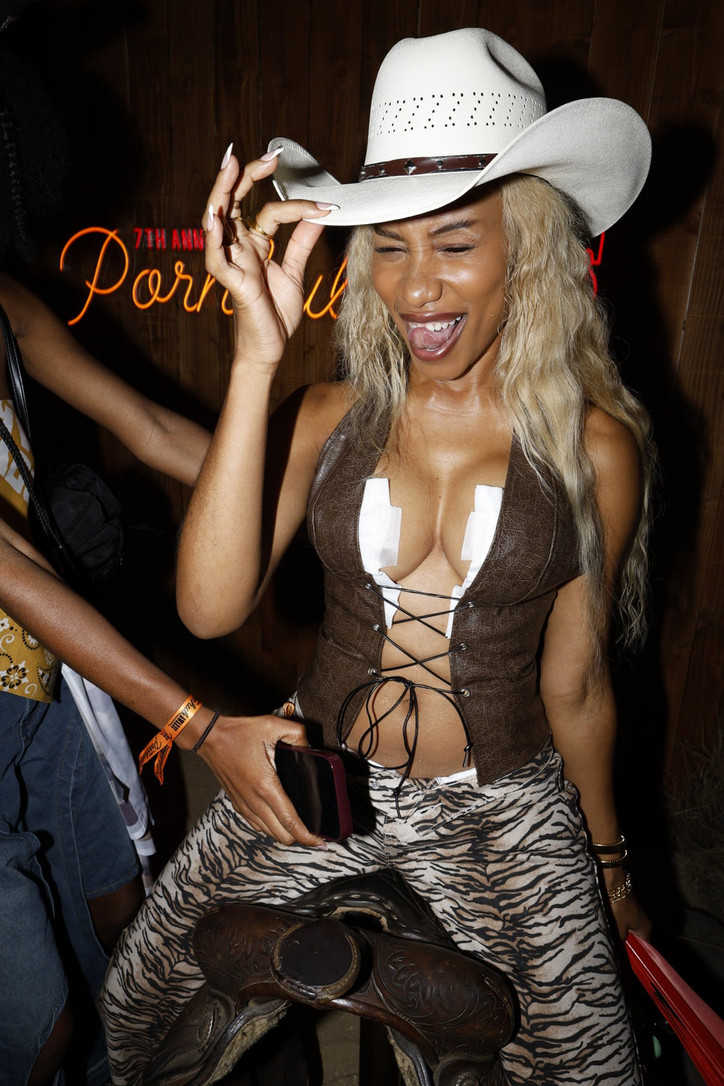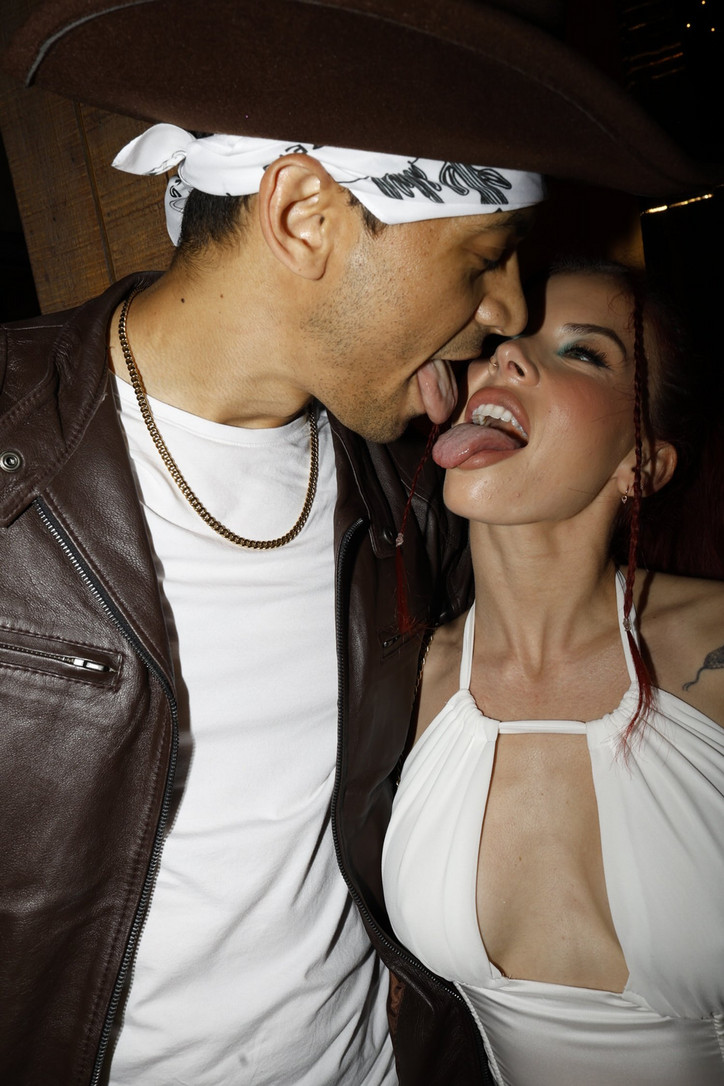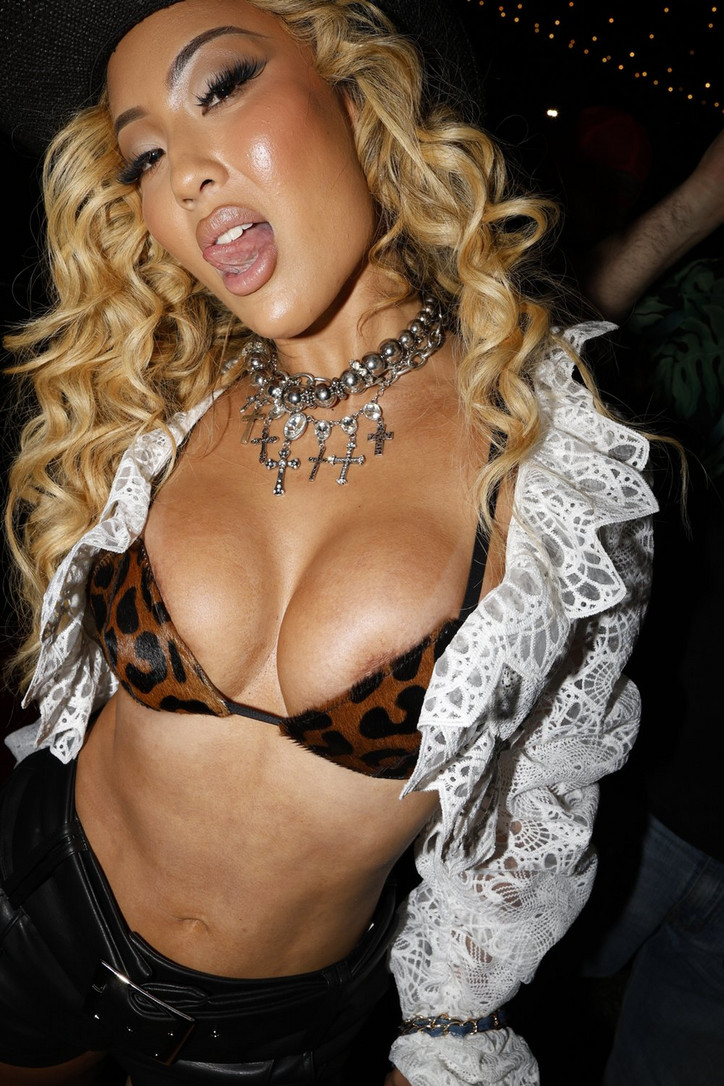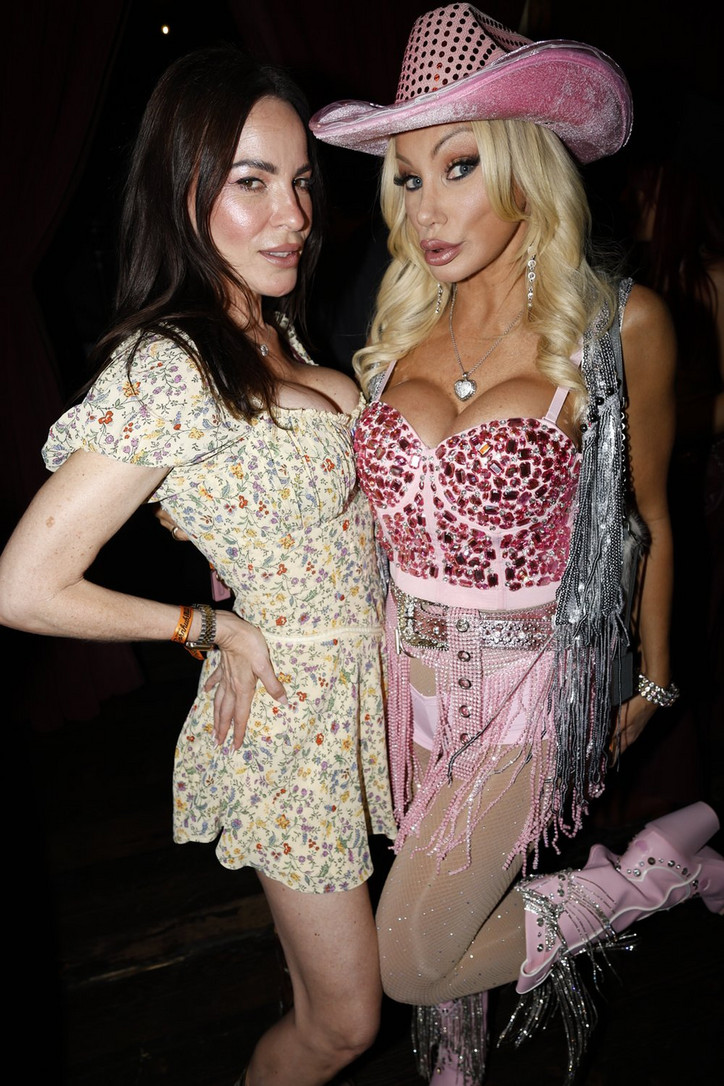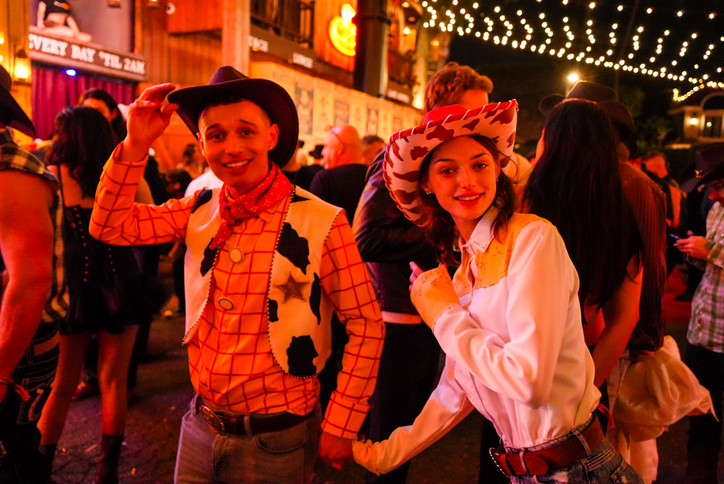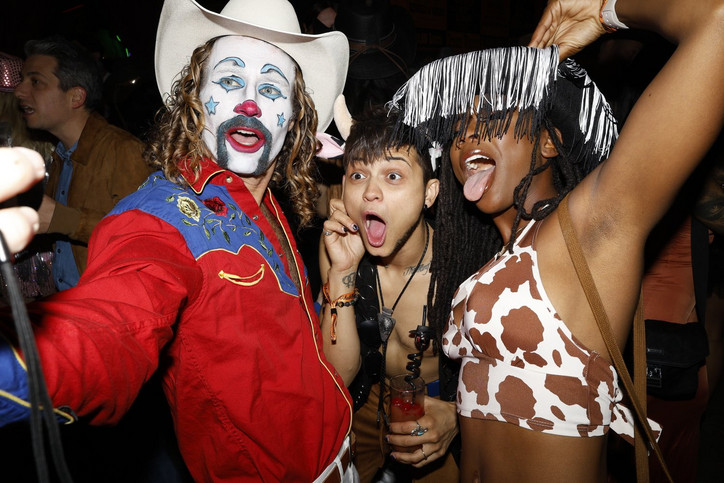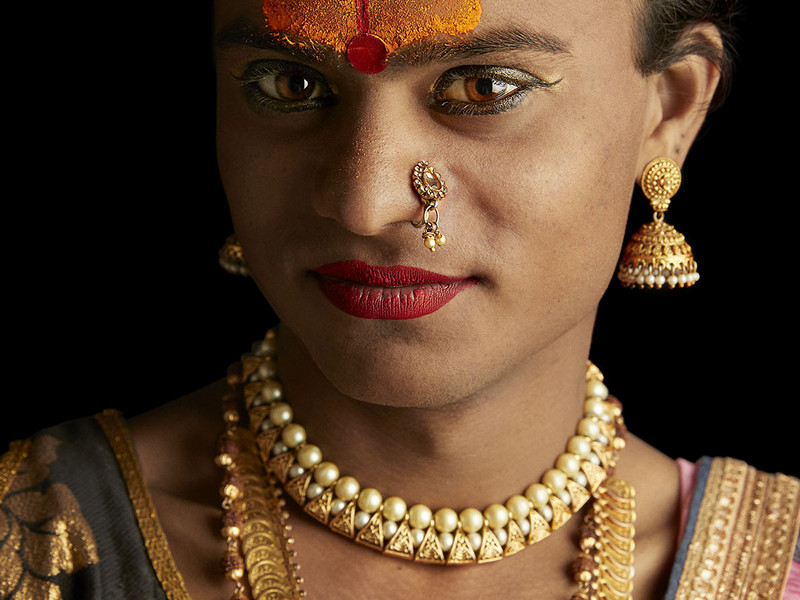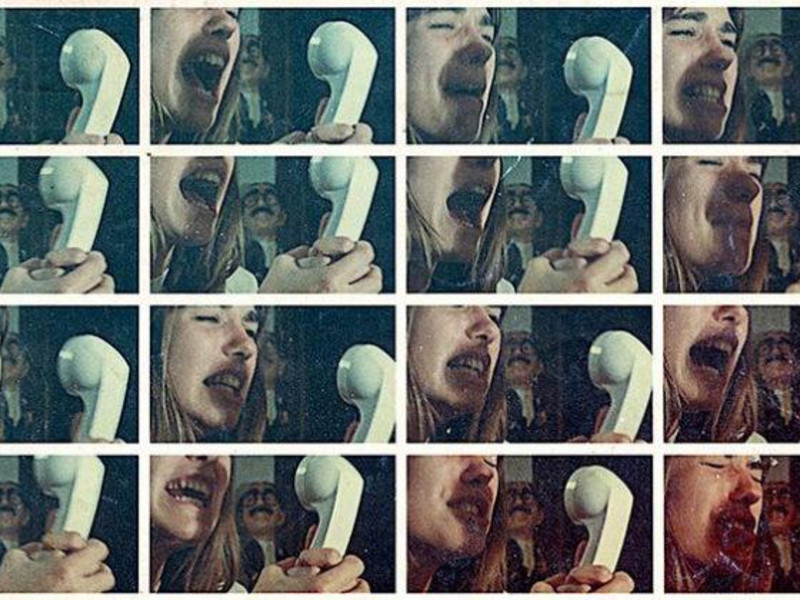Post Corona and the Future of Culture
In the wake of the citywide shelter-in-place ordinance, friends and local residents Dalya Benor and Frank Nesbitt put pen to paper about collective musings and projections on life before, during and after the coronavirus. Over the course of a few Facetime calls, phone conversations, and many texts, Frank and Dalya have documented a back-and-forth discussion about what the transformation of society may reveal in the coming months.
Is this the greatest artist incubation period the world has ever known? After months of contactless dating, will summer bring about a sexual revolution that puts the 70s to shame? When we come out of the rubble, will we emerge into a world glittering with a renaissance of creativity that has been incubating, or will everyone be tepidly adjusting back to normal life?
Offering a critical observation of where we are now, as well as thoughts on the future in the arts, technology and culture in the aftermath of COVID-19, two creatives provide insight into the state of the world we once knew.
Cultural & Social Upheaval
Dalya Benor—On a recent episode of NPR cognitive scientist Hugo Mercier talked about the political polarization happening where people are being divided into two ends of the spectrum. He also mentions an “optimistic anxiety” that coronavirus causes — a positive anxiety that forces people to react to the situation at hand. Have you noticed either of these things occurring?
Frank Nesbitt—I’ve seen both sides of the spectrum, there’s a lot of confusion and fear right now leading to a crippling anxiety from people not knowing what to do and searching for answers. The media is overwhelming and can cause people to easily get wrapped up into hysteria. But not everyone is as easily manipulated, so in contrast, you’re seeing a lot more people jumping into action and using this time to their benefit as they feel more optimistic about sparking change for the future. Uncertainty is not always a misfortune. Of course we don’t know for sure how life will be post-lockdown, but we can try to establish some order of our own.
DB—How has loneliness manifested itself in social dynamics, behavior, and art practices? Has the isolation caused an artistic renaissance or blockage of the brain?
FN—For a moment loneliness was a constant theme for the quarantine but I think people have moved past that and embraced the stillness of this time and are embarking on new self-journeys. There’s so many ways for us to stay in touch and activate our social needs while still being distant. It’s been really great seeing artists like Questlove bring people together with live-stream DJ sets and Tyler Mitchell hosting a 24-hour virtual movie night. Finding ways to establish a sense of community throughout this time thwarts off feelings of loneliness and actually jump-starts the mind to search for other creative outlets of your own. It’s encouraging because in a way, you want to join the conversation, you want to get involved and put something out to have people engage with and start dialogue. We need more good distractions.
DB—How are people going about dating in the time of quarantine? What are single people doing now to cope with (or mitigate) the inherent loneliness?
FN—I’ve been saying for a while that a lot of people are going to come out of lockdown boo’d up. Because we’re not out right now with our usual social activities, we’re missing that sense of spontaneity and the opportunities to meet someone new. With the absence of physical connection, people are looking for ways to extend outside their network. So we’re on dating apps, we’re swiping, liking, and sliding into the DM’s. One of the great things of the eventual curtain call on quarantine is that everyone who’s been having an online love affair will finally be able to meet and see if that digital intimacy extends IRL.
DB—Do you think people are spending more or less time on their phones? Is Instagram finally losing its social currency and the weight it once held?
FN—What does your screen-time say for the last week? We’re on our phones more than we’ve ever been, trying to keep up with the news, WebMD to make sure that sneeze isn’t going to be your last, checking in on social media and using memes as escapism (thank god). Instagram is at an interesting point right now because the doors have been opened into more interior lives and less exterior personas. There’s a shift in what's now valuable online because social distancing doesn’t allow for a lot of the enviable, over-produced content that we’re used to seeing on our feeds. So we’re seeing more realness, personality and creativity. There’s still that lingering feeling to stay up and active, and let’s face it—relevant during all this but since it's (mostly) a level playing field on content, you can definitely be more relaxed with it.
DB—Now that our phones are one of the few distractions we have, how has this influenced the power of social media?
FN—The power of social media won’t be ceasing anytime soon but we can shift how it works for us and what we engage with. The sort-of ‘Get Real’ trend on social media was already slowly making its way into more feeds but with this forced spike of normality it's been more prevalent. I think the type of content we’re responding to right now will persist after this all ends. It’s easier to connect when there are no facades.
DB—What will fashion look like after spending months in sweats in our living rooms? How will people dress?
FN—All I’m gonna say is get ready for LOOKS. We’ve been caged up! I haven’t worn an actual outfit in over a month and I miss getting dressed up. It’s going to be a different world socially when the gates open. And because of that, I think personal style will reign supreme and the sense of self-expression through fashion will only be stronger. People have had time to marinate and think about who they are, who they want to be, maybe even reinvent themselves and that’ll reflect how we present once we can be out again. Although I do believe people will prioritize comfort, I don’t think anyone will want to see another pair of sweats ever again— sorry, athleisure.

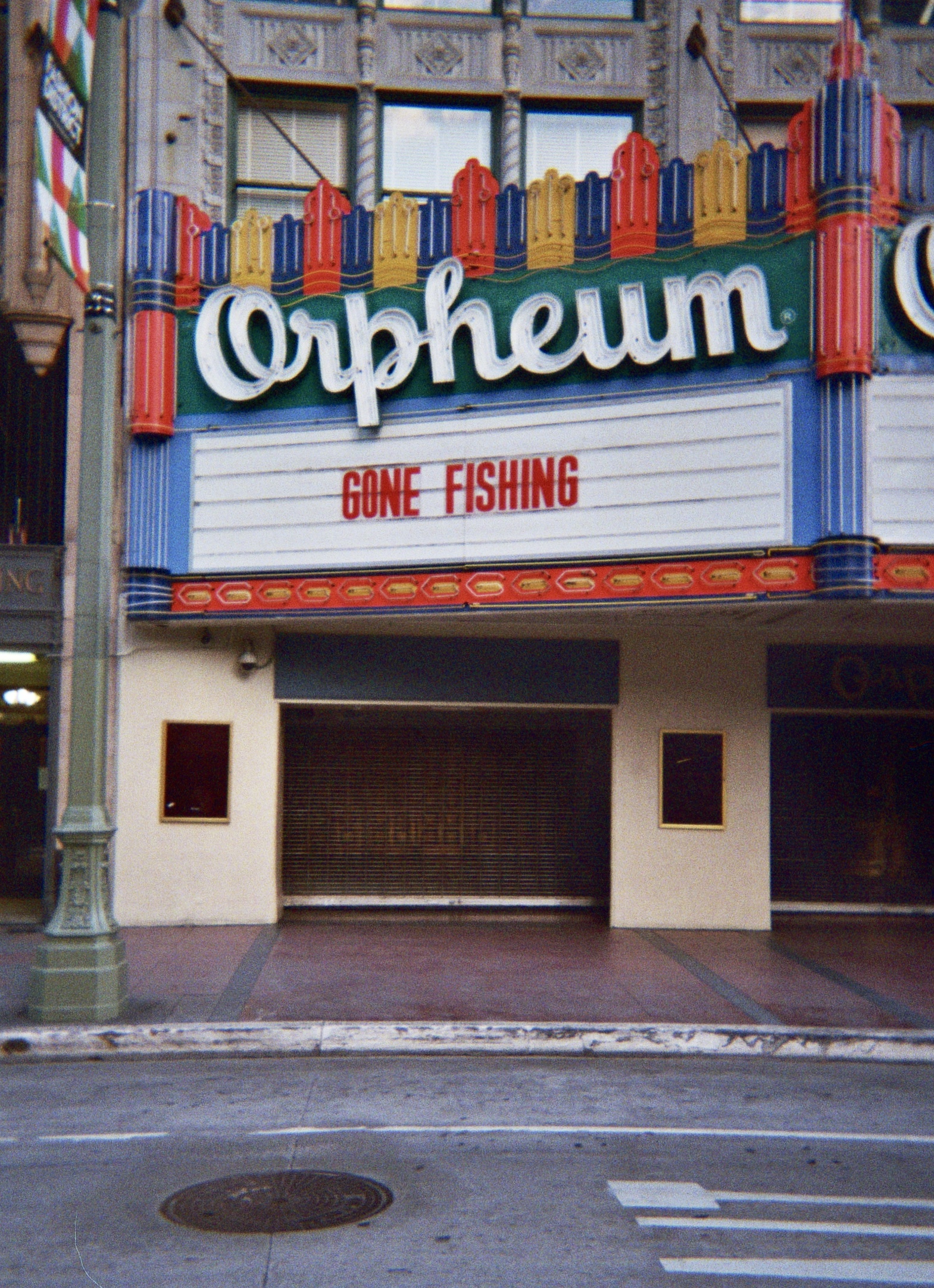
Relations & Division
DB—Is the coronavirus bringing people together or dividing us into stratified socio-economic pecking orders?
FN—Online there's definitely a sense of community with the narrative that we’re all going through it and doing the best we can which can be reassuring. But when I leave the confines of home, and go to the grocery store for example or anywhere there’s people inhabiting a public space, there is a strong feeling of division, like everyone thinks the other person is the culprit because what's happening right now is a threat you can’t see. So guards are up, heads are low and the fear of the virus has us on the outs with strangers before we can even say hello. It will be nice to just exist in public again without this looming feeling of resistance.
DB—What about the response from celebrities quarantining in luxury? How do you feel about the income inequality in the wake of coronavirus?
FN—It’s been interesting to watch and I’ve seen some things that haven’t been in the best taste. Of course, everyone’s situation is relative to their reality but it's about perception. What message are you sending? The reality is the playing field is not level. We are not all in the same boat. Naturally, we are all quite restless and trying to keep sane but the waters get murky when you see complaints from people you know who live on sprawling acres with unlimited resources. And right now, inequality boils down to just that, resources. The truth is most people are locked down in compact spaces, sometimes with multiple family members, dividing resources while trying to manage loss of income. It’s really about being cognizant of what's going on around you and thinking about your contributions. Like hey I have more than enough, instead of woe is me, think about What can I do to help?
Sexual Revolution
DB—Has the quarantine made people hornier? More shameless? More willing to do things they wouldn’t normally before? As the quarantine continues, the thirst trap photos only seem to be getting more and more blatant. What’s your take on this?
FN—For us single people (yes, I’m single) we’re in this sort-of forced celibacy right now so the thirst trap is king. People are shamelessly advertising and the goods are on display. Maybe pre-quarantine you wouldn't have put that picture up because you had the freedom to explore your sexual identity in other aspects of your life, but now without that, Instagram is filling the void becoming the ultimate mating call. If you think about it, most posts are just bait and within that bait there’s probably only 3-5 people you actually want to interact with your latest revealing photo, but you put it out to the public and wait for them to come to you. Post-quarantine there’s gonna be a sobering “did I really post that?” but for now we’re all in a haze of hormones. There’s a method to thirst trap madness.
DB—As for new relationships (official or not) and couples that got together right before the coronavirus, do you think these relationships will withstand the quarantine? Will the forced isolation build a stronger foundation for them or when this is all over, will people take their coronavirus goggles off and wonder “what just happened”?
FN—Lockdown hit so abruptly that it seemed like nothing really stood a chance. If you had just started a new relationship or were planning to finally meet up with that guy you matched with on Raya last month, Corona put a halt to it all. But what seemed to be a loss can actually be a win. There’s more time to dedicate to nurturing those relationships and build a strong foundation for the future. We can actually focus more on what we have and not the possibility of “What if I meet someone else?”
DB—Has the desperation for intimacy and connection become more magnified?
FN—I never really like to use the word desperate in reference to the natural human want for connection with other people. For me, if you know what you want and pursue it appropriately, there’s nothing desperate about that. All of us are looking to fill in the blanks for the loss of physical connection. The indefinite solitude of it all indeed sparks a want for intimacy or maybe wishing you had a partner through all this, but right now I think we are just eager to communicate.
DB—After coronavirus, do you think there will be a reappreciation of monogamy and less of the millennial sentiment of always “looking for something better”?
FN—Among millenials there’s been this illusion of options because we have access to anyone globally in the palm of our hands— so it's a collective attitude of “Why tie myself down?” What corona has shown us if anything is that the sea of options you thought you had is now a very small puddle. With all the restrictions, it’s leading to a shift in values and people are realizing how important it is to have someone close to you.
Artists Incubation Period
DB—Will incredible art come out of this period or will people emerge from a vacuum with little to show for it? Are the next masterpieces waiting to come out of incubation?
FN—There’s two sides to this— on one hand we have so much free-time to create and think of new ideas but on the other, new ideas & inspiration often spawn from being out and experiencing life. That paired with the crippling anxiety of when this will all end, can stunt ways of expression. But history has shown that tragedy always gives rise to great art. I was reading a piece in the LA Times by art critic Christopher Knight on how the Bubonic Plague in 14th century Europe changed art history and how the interactions between politics, economics and social relations fostered a new approach for art in Medieval Europe. And that's what we have here with Coronavirus, there’s so much to be interpreted on this war we are currently fighting. We’re in a cultural crisis and artists have the great opportunity to translate that into whichever respective medium. Expect to see a wave of new young talent emerge. It’s exciting to see what will come out of this.
Quality of Life & Leaving Big Cities
DB—Do you think standards for quality of life will take on more weight after quarantine?
FN—People are definitely beginning to realize some of the disadvantages of big city living in relation to corona. Here in Los Angeles things are a little different than most large metropolitan cities because we are very spread out and we don’t depend on contact with other people to get around since we rely on our cars as the main source of transportation. Still, with larger populations there’s always going to be an issue of access & availability with everyday things like food and care. We’ve seen New York hit hard by this because people are literally living on top of each other. If you look at NYC following 9/11, there was a mass exodus of Manhattan and New Yorkers flocked to calmer boroughs and even out of the city all together. Similarly with Coronavirus, we’re going to start to see a migration to more rural & suburban areas in favor of geographical wellness, prioritizing our own well-being over the toll and abuse that often comes with big cities because they can eat you alive! People are going to begin to think, “Is this city serving me or hurting me?” and reassess what's important to them in the place they call home.
New Wave of Influence
DB—Will the Instagram facade fade?
FN—I think we’re reverting back to the origins of what social media was meant for, and that's communicating. Staying in touch and keeping up with your friends. We’re moving away from the element of ‘influence’ as people embrace authenticity. One of the weights that’s been lifted during lockdown is the outside pressure we normally get from Instagram. Things like FoMo, wondering why you weren’t invited and comparisons like hey look they’re doing that! And now with the transition from produced content to a now more lo-fi existence, we’re seeing a much more organic side of the people on our feeds and things are feeling more real, more creative, making it more fun to engage with.
Consumerism & Mindful America
DB—Do you think Corona will affect consumerist values and shift mindsets away from materialism and onto more meaningful, non-monetary things?
FN—We’re all anxiously looking for a return to normality and to get back into our routines whether it be shopping, dining out or clubbing. With that I’m sure we will see a spike in indulgent spending during that first wave of openings once restrictions are lifted and the economy opens back up. Although, there are some economic factors that will determine how we approach this, like job opportunities and financial security. It won’t be this grand bounce-back for everyone and there’s a lot of losses that need to be recovered. But I think we’re going to be moving into a more mindful era of spending especially with millennials, and we’re going to alter our relationship to material things. Instead of frivolous spending on trends, you may see more investments into quality, long-lasting products. The world we will step into post-quarantine is not going to be the one we knew before and that's something that will take time to wrap our heads around. The good thing is we will come out of this with our value system more focused on the interpersonal rather than the material. Prioritizing the people close to us over the superficial.
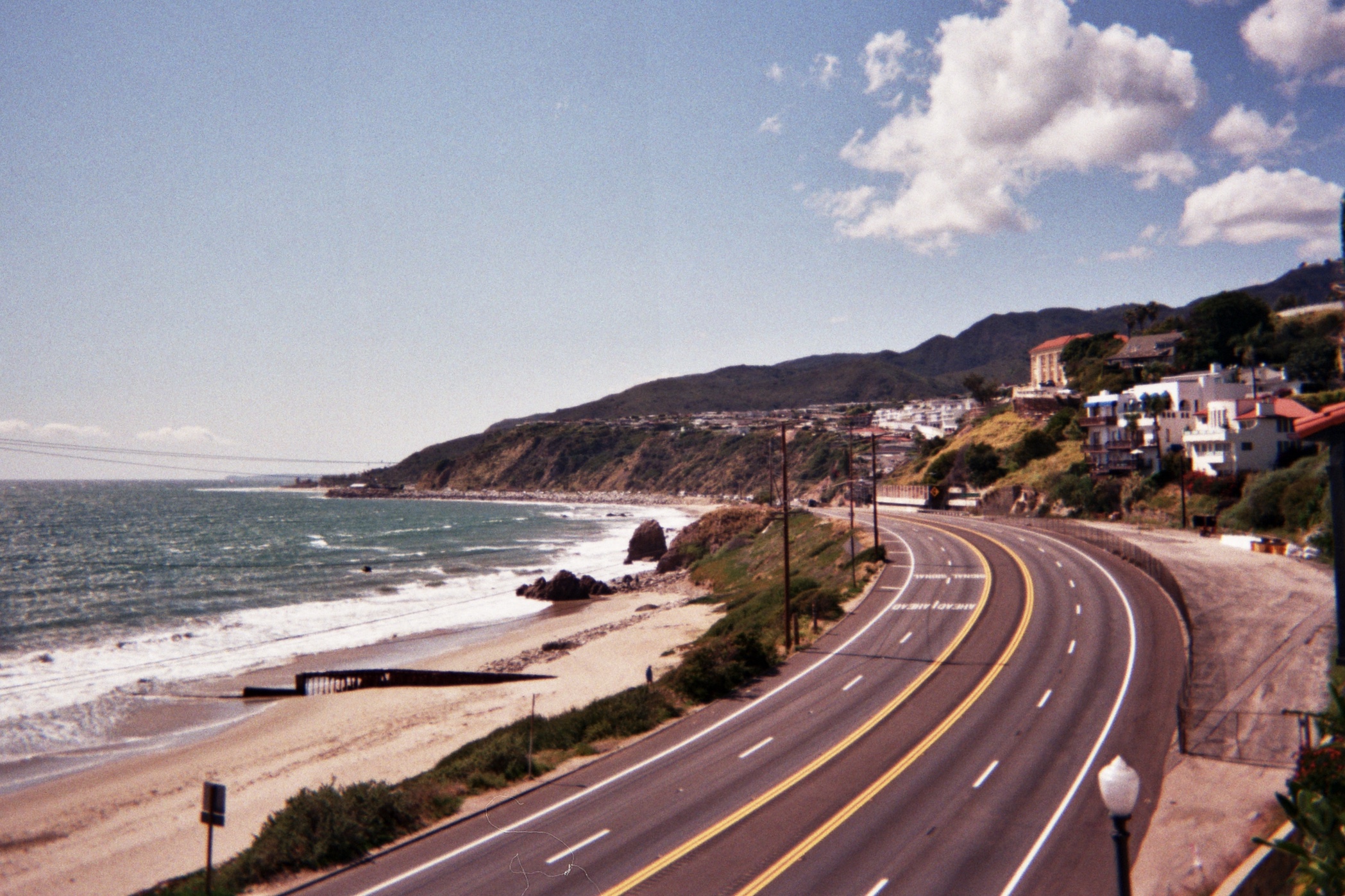
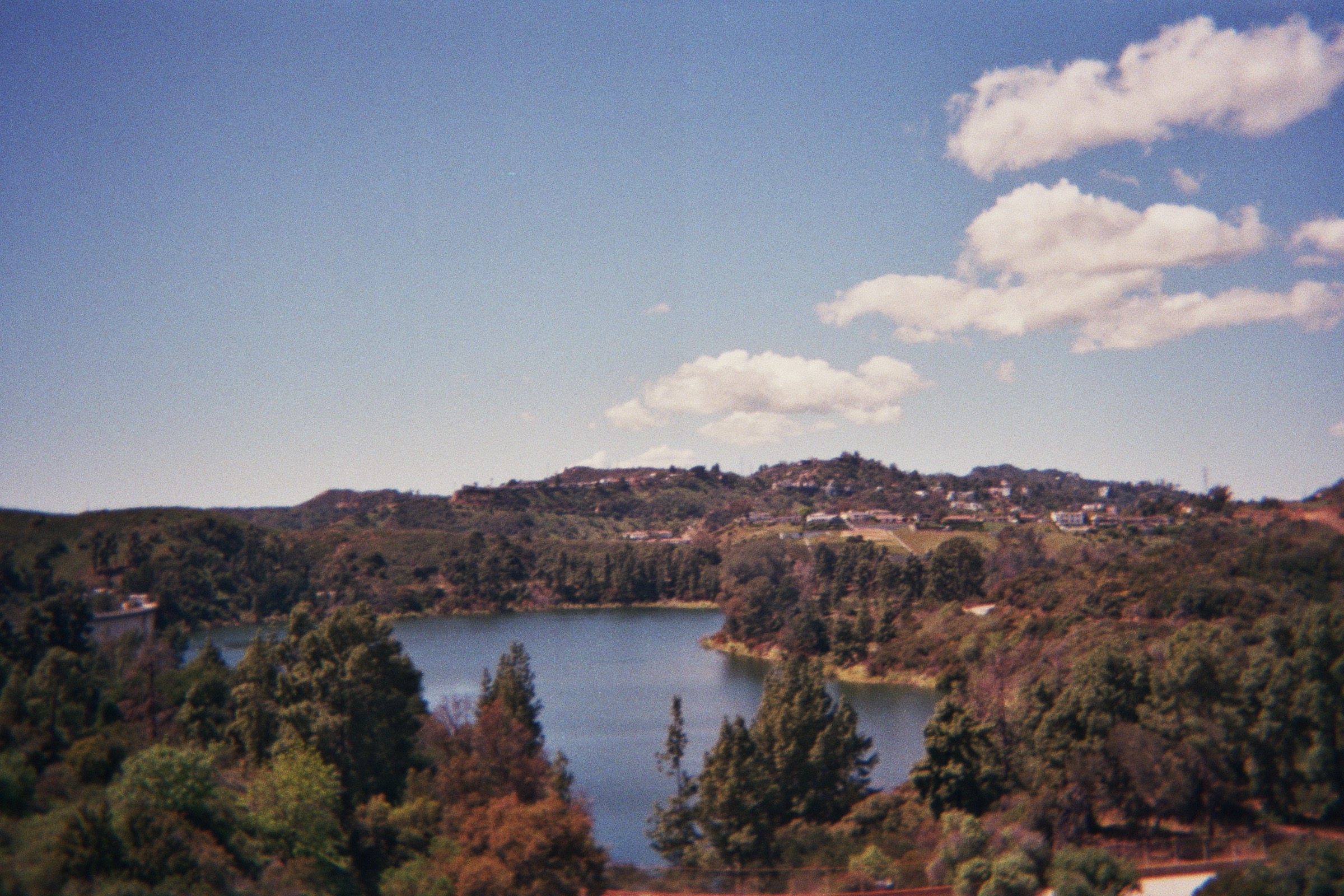
Reverting to Simplicity
DB—Is this a “natural selection” of sorts in terms of quality over quantity, filtering out the complete saturation and endless options we’ve convinced ourselves we need?
FN—Absolutely. There’s just too much overproduction when all we just need is enough to satisfy our basic needs. Being in quarantine has shown us how to live and operate on less. We’re now more conscious about the things we consume, how we utilize what we have, and overall and less wasteful.
DB—NYT predicted that 70% of independent restaurants will not withstand the effects of coronavirus and be forced to shutter. What do you think about this?
FN—It’s really tough to see because a lot of these places have become cultural institutions and anchors for their local communities. Your local diner, magazine stand, coffee shop become mainstays in your routine and markers in your relationship to a city and without them, it changes the landscape forever altering the city you once knew. In LA we saw Swingers Diner announce it’s closing after almost 30 years, a true icon of Los Angeles. How does that happen? We’ve seen large corporations announce they’ve opted out of paying rent. Of course they will survive, but who protects the little guy? These sorts of closings can even discourage new small businesses from opening because it feels like no one is safe. Landlords are out for blood even in a crisis and around the country we’re losing some real gems.
DB—Has isolation forced people to become more self-sufficient, less reliant on others, and more reflective, slower, and inward?
FN—For me, this has really been about slowing down and taking time to assess myself. The constant ‘Rise & grind’ culture we’re hit with on a daily basis says there’s no time to relax but I’m enjoying the time to take things easy without the pressure to constantly be on and produce. With distancing, we’re learning how to move more independently, be stronger problem solvers and less reliant on others. Ultimately, balancing that need for social stimulation with the notion that my own company is enough, too.
DB—It seems like craft is having a major comeback. Will there be a resurgence in DIY culture? Will people begin darning their own socks and making their own almond milk for months to come?
FN—It feels like everyones on Quarantine’s Next Top Chef right now, people are cooking, crafting and exfoliating like crazy. Places like Etsy & Depop have probably never seen more site traffic. With fashion there’s been a big surge in reworking old clothes and upcycling to bring some new to the old. My friend Reese Cooper just released a DIY kit where he’s shipping excess fabric from his factory & instructions for customers to make their own jackets. So it’s cool to see everyone inspired. With so much time on our hands we’re all tapping into new hobbies and eager to create. What better time than now, right?
